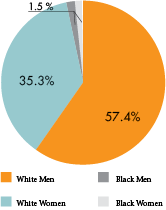Athletic department plans to diversify

The chart above show the levels of employment by the NKU Department of Athletics. All information for the chart was collected from their website.
Over half of the employees listed on the NKU Athletics website are white males, which has remained a common trend at universities across the country.
According to the Race and Gender Report Card from the Institute for Diversity and Ethics in Sports, in 2012 only 18.6 percent of men’s head basketball coaches were African-American among Division I schools and 89 percent of athletic directors at Division I schools were white.
Of the 68 employees listed on the Athletics website, only 2 of them are African-American, 63 are white, and 3 could not be identified.
However, according to multiple university employees there are steps being taken to further diversify the staff.
“We advertise for our positions with HR and we ask them to put them on NCAA news, on what’s called the National Association of Collegiate Directors of Athletics (NACDA),” Ken Bothof, athletic director, said. “We will also advertise on the Black Coaches Association website and do some things to reach out and diversify our pull as much as we can, but we go through the regular human resources process and committee to do that.”
The university is currently partaking in part of an NCAA Diversity Issues Plan, according to Kathleen Roberts, senior advisor to the president for inclusive excellence, which is in very preliminary stages.
According to a draft of the report in 2011, 2012 and 2013, zero percent of the six senior administrative staff were racially or ethnically diverse. In 2011, zero percent of full and part time assistant coaches were diverse, but by 2013 it had increased to 12 percent of full and part time assistant coaches were diverse.
“What we have to do here is identify ‘what is,’” Roberts said. “And then identify action steps to make ‘what is’ better, or to strengthen if ‘what is’ is good.”
Roberts added that if the university doesn’t come up with a plan to effectively diversify the athletic administration, the university’s reclassification as Division I could be at stake.
“This is all about the transfer [to Division I]. If we don’t pass this we don’t get to DI,” Roberts said. “It’s not about, ‘Oh, you’re not going to pass because you’re numbers aren’t good,’ it’s about ‘Oh, you won’t pass because you don’t have any ideas of how to cure the differences.’ And we’re all about intervention and initiatives.”
Sue Ott Rowlands, provost and executive vice president for academic affairs, says that the university advertises for positions in a variety of places and reaches out to colleagues at other universities to see if they have recommendations.
“One of the main things in academic affairs that we try to do is make sure that when we search for faculty that our candidate pools are as diverse as possible,” Rowlands said. “But we really want our candidate pools to be representative in race, ethnicity, gender, in whatever way.”
Bothof says that when looking to fill positions, athletics along with the school will form committees to find the appropriate person for the candidate. However, it depends on the position as to who will sit on the committee.
“For instance we just hired a new academic coordinator we had another academic advisor sit on that committee,” Bothof said. “When we hired our assistant AD for communications, same thing. We have a broad based participation in that… coaching positions we may not always have other university personnel, it may just be other coaches or other athletics people.”
Bothof also added that if the position directly interacts with the university they will definitely involve those parts of the university in the hiring process.
In the search to fill positions, there is no limit for how far the university searches for candidates.
“There is no geographical [limit],” Bothof said. “It goes out nationally, and typically with our positions it’s with the NCAA. They have a very active website, where all postings for college athletics typically occur and then NACDA, the same thing. They’re very different levels throughout athletics, from coaching to entry level administrative, to AD’s positions, they cover the gamut.”
As far as the university’s commitment to diversify the administration, Robert’s said she’s never seen such pledge to the diversification as she has at NKU.
“I think NKU is incredibly committed [to increasing diversity],” Roberts said. “I really believe that the president and the provost at NKU really understand the importance of this work. So I have great expectations for the future of NKU, and the director of athletics is very committed too.”

